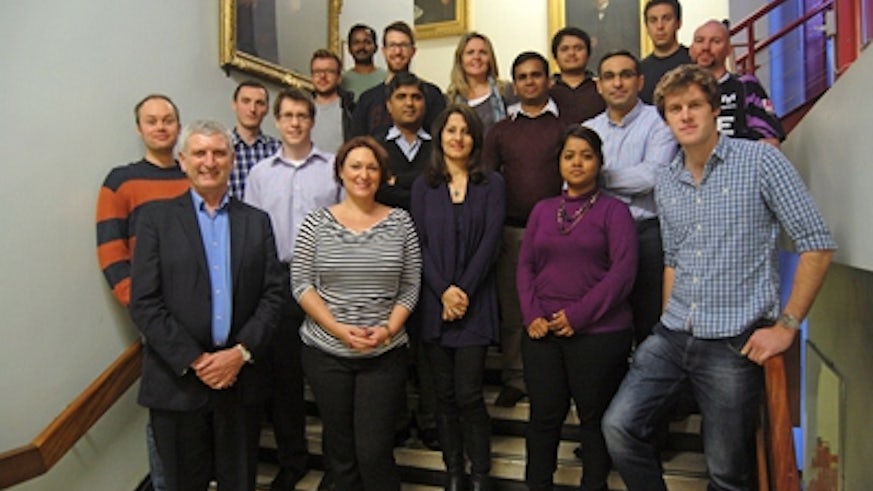Queen's Anniversary Prize
22 November 2013

A pioneering University research centre that has tackled the legacy of past industrial activity and provided solutions to the world's future energy challenges has been recognised for its achievements.
The Geoenvironmental Research Centre (GRC), based in the University's School of Engineering, has been awarded a Queen's Anniversary Prize for Higher and Further Education.
A biennial award scheme, which is within the UK's national honours system, is one of the UK's most prestigious forms of national recognition open to a UK academic or vocational institution.
Led by Professor Hywel Thomas, the Centre was established in 1996 and has since steered the field of geoenvironmental engineering.
From its earliest days, it brought together practitioners, experts, universities, industry, international organisations and governments to tackle geoenvironmental issues, and made the direct translation of its research to industry one of its guiding principles.
In Wales, 770 companies have benefitted from the Centre's work and expertise, while 14 new ones have been created as a result of its research. It has safeguarded jobs in the region and given companies the opportunity to compete in new markets in the UK and overseas.
The GRC currently leads a major "Ground Energy" programme of work, the Seren project. Areas being investigated include: Ground source heat, Geothermal energy from old coal mines, GIS based decision support systems (Geoinformatics), and Advanced Computational Modelling of Ground source heat processes. The project is aimed at helping businesses to find new commercial opportunities in these fields.
Its work has also in the past helped Welsh companies in the general geoenvironmental area to produce new and innovative fibre grass seed mulching products, reuse blast furnace slag waste and develop industrial wastes into cement substitutes.
Further afield, the Centre's ground-breaking research has helped shape the design of some of the world's first nuclear repositories and manage land contaminated by persistent organic pollutants – chemicals that don't degrade.
Staff from the Centre also contributed to an improved understanding of how arsenic was being released into groundwater in the Bay of Bengal – the worst case of mass poisoning in the world.
Vice-Chancellor, Professor Colin Riordan said: "The Geoenvironmental Research Centre and their partners in industry have created an interdisciplinary body of expertise that is recognised and relied upon internationally.
"The Centre's work has had truly global impact, helping safeguard human health and regenerate the environment. It has been vital in tackling the legacy of past industrial activity in Wales, Europe and around the world. Its pioneering work is also shaping our future by providing new solutions to waste and energy sources.
"This is the fifth Queen's Anniversary Prize for Cardiff University and it's an achievement that we share with our whole community. On behalf of the University, I congratulate Professor Hywel Thomas and all at the Centre for their success."